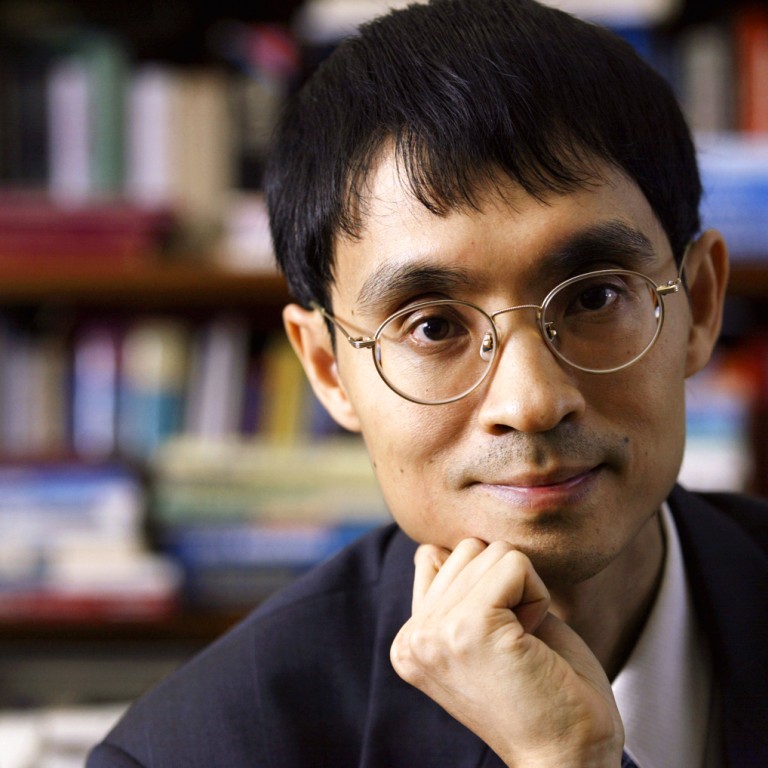
Debate over how to expand electorate of nominating committee for 2017 election
All agree that the electoral base for the body that will pick candidates for chief executive must grow, but the question of how remains
While deadlock remains over whether the public should be allowed to put forward candidates for the 2017 chief executive race, consensus has emerged on one issue: the need to broaden the electorate of a committee that is key to the electoral process.
But the question of how to give more voters a say in the make-up of the "broadly representative" nominating committee that will choose which candidates face the public vote remains controversial.
Proposals abound to replace the much-criticised corporate votes, held by business, trade and professional groups and other such bodies, with individual ballots - notably from Beijing-loyalist legal heavyweight Professor Albert Chen Hung-yee.
But lawmakers in functional constituencies, where corporate voting also plays a role, say it is not simply a question of expanding the number of voters.
"It is not only about the size of the electorate, but also about balanced participation," said agriculture and fisheries sector lawmaker Steven Ho Chun-yin.
The need for "balanced participation" was set down in two decisions of the Standing Committee of the National People's Congress on Hong Kong's progress towards universal suffrage.
The government has repeatedly stressed that those decisions, along with the Basic Law, set the framework for reform. The point was emphasised earlier this month at the launch of a consultation on reform.
During a recent visit to Hong Kong, Basic Law Committee chairman Li Fei said the nominating committee for the 2017 chief executive election should have a similar make-up to the 1,200-strong election committee that voted in Leung Chun-ying last year - split equally among four sectors.
The election committee used since the handover has long been criticised as a "small circle" representing narrow interests.
Excluding lawmakers, who were ex officio members of the committee, the electoral base for the committee stood at just 250,000 voters - fewer than 7 per cent of the city's 3.5 million eligible voters.
Seven of the 38 subsectors that elect committee members have 200 voters or less, including corporate voters. The 158 voters in the agriculture and fisheries sector, for example, are not farmers and fishermen. Some 75 are named organisations, such as the Graziers Union and the Aberdeen Fisherwomen Association. The rest go to corporate members of eight trade bodies.
Chen, a veteran legal scholar, last month proposed broadening the electorate base to 600,000 by switching all corporate votes to individual ballots.
But Ho said allowing everyone involved in the two industries a vote would go against the principle of "balanced participation". Besides, those who exercised the corporate vote had gone through elections within their organisations.
"The sensitive balance of the industry would be disturbed if we included all practitioners as voters," said Ho, of the Democratic Alliance for the Betterment and Progress of Hong Kong. "Participation will overwhelmingly lean towards the fisheries … There are 6,500 fishing boat licences, but only 43 pig-raising licences and 30 chicken-breeding licences.
"I acknowledge the need to broaden participation, but simply maximising the number of votes would definitely violate the principle of balanced participation," he said.
Cultural sector lawmaker Ma Fung-kwok said his sector faced the problem of defining the ambiguous boundaries of the culture industry.
"It is possible to adopt individual votes, but the prerequisite is an industry-wide agreement over who belongs in the circle," said Ma, whose sector currently has 2,545 voters, including both organisations and individuals. "Take publications as an example. Should all news workers - ranging from print to broadcast to new media - be included as members of the industry? The industries have to forge a consensus first."
